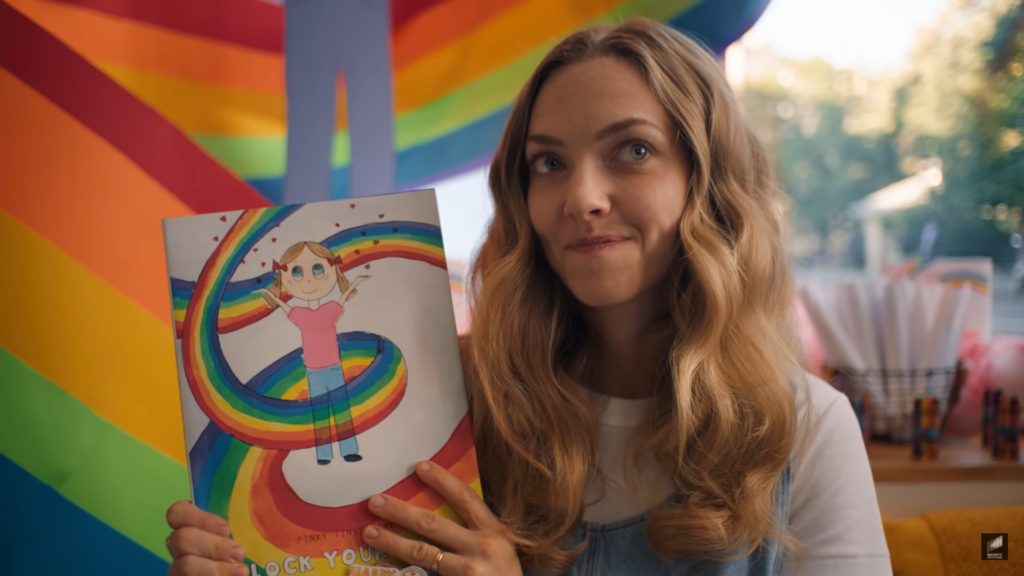As a mother of three I can remember the early motherhood days all too well. As much as I love the baby snuggles, the sweet smell and newborn clothes, I remember the struggles too. For some women it is harder than others. For some women, like the main character in A Mouthful of Air, it is almost unbearable.
About The Movie
Julie Davis — warm, kind, loving to her husband and child — writes bestselling children’s books about unlocking your fears, but she has yet to unlock the dark secret that has haunted her own life. When her second child is born, that trauma is brought to the fore, and with it, a crushing battle to survive.
Director and Writer Amy Koppelman shares…. “Nothing’s stronger than a mother’s love. There’s a phrase we’ve all heard a thousand times. And it’s true. It’s certainly something Julie Davis believes, right up until the moment she realizes she might be up against something stronger. This force isn’t coming from the outside. It’s living inside her own head. And feels impossible to escape.

I’ve spent the twenty-five years since I gave birth to my first child writing about motherhood and women’s mental health. As a novelist, I think about how to bend a sentence in a way that allows it to breathe, to convey the magnitude of loss in the description of a glance, capture love in the white space between paragraphs. Driving me — always — is a desire to reach through the page and connect to the reader. To form a communion of understanding. An acknowledgment of shared truth. And to try — in some small way — to remove the stigma of mental illness from motherhood.”
This film is a heartbreakingly beautiful story that shows a real look into a mother struggling big time. I love that the movie portrays someone who has it all, who has every reason to be happy and yet still she can’t seem to escape the mental illness. PPD does not discriminate. Did you know as many as 40% of people giving birth experience postpartum depression (PPD), and half of those whose partners develop PPD also experience depression? While most new parents experience the “baby blues”, some become deeply depressed, or even develop psychosis. “Beyond COVID-19, PPD is another pandemic facing Americans,” said Dr. Harvey Karp. “I’ve met far too many women who described the first months of motherhood as one of the hardest and loneliest experiences of their lives.”

The three top triggers of PPD are exhaustion, lack of support, and persistent crying from baby with symptoms manifesting as anxiety, fear, intrusive thoughts, fatigue, sadness, and feelings of hopelessness. The good news is, you’re not alone. Hundreds of thousands of new parents experience postpartum depression every year. Be honest with yourself and your support team and your doctors. Ask for help. Check on your mom friends, really check in on them.
Amanda Seyfried is incredibly haunting as Julie. She delivers a remarkable and touching performance. I love that through her character, who sees the world through such child like wonder, Amanda also portrays the deep darkness mothers can experience. This is such an important conversation that should be talked about.

